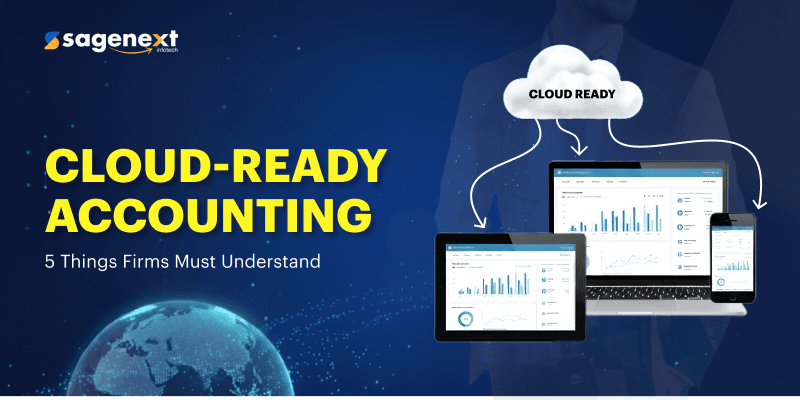
Accounting Practice to the Cloud: 5 Key Things You Should Know
Cloud technology is becoming the new standard for U.S. businesses, and everyone seems excited to say they’re “on the cloud.” The shift makes sense. Competition is intense, and companies need smarter, faster, and more reliable systems. Accountants, for example, are increasingly choosing cloud-based solutions like Sage 100 Cloud instead of relying on outdated, manual processes.
If you’re still unclear about how the cloud works, here’s the simple version: it’s a remote IT environment that you access through your local computer using an internet connection. Instead of storing data on your physical machine, everything lives securely in a data center.
Businesses across the United States are moving to the cloud for good reasons, enhanced security, remote access, better collaboration, and stronger disaster protection. If your firm is still running on traditional in-house servers, it’s probably time to consider upgrading.
However, before moving Sage 100 to the cloud, you need a clear understanding of how the transition will impact your daily operations. Your team may need training. You’ll need to evaluate hosting providers. And you’ll need to assess whether your current workflows are ready for a cloud environment.
Here are 5 key things you should know before moving Sage 100 to the cloud:
Decide The Services You Need
There are two important aspects you need to consider before taking your Sage 100 to the cloud. One, carefully choose the cloud environment. You can opt between a single or multi-cloud environment depending upon your needs and when you are done with that, your next step should be to identify the services your cloud vendor is offering. Your chosen vendor may be giving you software-as-a-service (SaaS), infrastructure-as-a-service (IaaS), or platform-as-a-service(PaaS), and you can go for the option that you think is ideal for your business type.
Know The Risks You Are Taking
When you put all of your data on the cloud, your internet dependency multiplies. Also, since you are storing your critical data on third-party servers, it becomes necessary to ensure that your data is safe and sound. So, before you finally migrate into the cloud with your services provider, make it a point that the risk of migration is minimized. There should be ample security measures in place, such as data encryption, anti-virus protection, security surveillance, etc, and the vendor must promise a high uptime for a glitch-free business. Going off the grid can prove to be quite expensive for a cloud-based firm.
Double-Check the Service Level
When talking about server uptime, it is best to do a little background check of your Sage 100 hosting provider. Check their uptime history. If you find recurring incidences with high server downtime, you might need to rethink your decision. Talk to your provider about their strategy of coping with server downtime and what is the cause behind it. Also, the availability of round-the-clock customer support is also important when it comes to technical glitches.
What Are the Costs Involved?
Every business does and should follow a pre-defined budget. Undocumented and unplanned expenses should be a huge no if you wish to retain your investment. Since taking your Sage 100 to the cloud will involve some costs in the process, thinking it through can help. Although moving to the cloud costs a lot less than installing your own in-house server and maintaining it, you should still do thorough research to know the actual costs involved and if you can afford it.
Go Through the Cloud Options
Now, this step needs you to do a little bit of thinking. With the variety of cloud options that are available out there, ranging from public, private, virtual, and hybrid cloud, making the right decision is necessary. While bigger firms usually go for a private cloud environment, plenty of smaller firms also opt for the public and hybrid cloud environments. While private clouds are usually more secure compared to the public cloud, the costs involved may be higher in the former compared to the latter. However, the freedom of choice lies with you.
Lastly
Cloud computing delivers major advantages for businesses, but choosing the right path can feel overwhelming. The real difference comes from having a reliable technology partner who understands your needs, supports your transition, and provides cost-effective solutions without draining your budget. Whether you’re moving to QuickBooks Hosting on the Cloud, exploring Sage Hosting on the Cloud, or shifting other applications, the right provider ensures a smooth, secure, and affordable migration. With expert guidance, predictable pricing, and responsive support, adopting cloud technology becomes far easier—and far more beneficial for your business in the long run.






